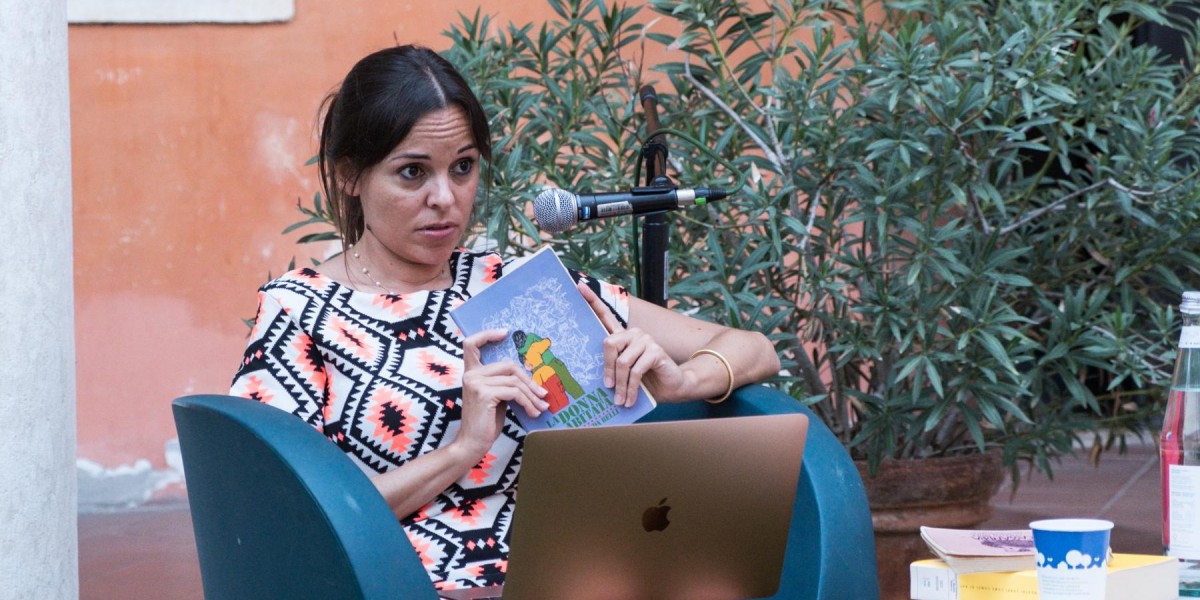
A feminist perspective on war and violence
The green, open space of Mantua's Baratta library garden contrasted with the raw, suffocatingly dark subject matter dealt with by Lilia Giugni in a compelling exploration of conflict, war, and injustice using the ‘reading key’ that is feminist logic.
Cambridge professor, researcher and activist on matters of gender and social injustice, Giugni presented five different but connected books. Her analysis begins with Christina Lamb’s journalistic novel Our Bodies, Their Battlefields. This deeply traumatic book expands explicitly on how war rape is used as both a weapon and strategy to terrorize, recruit young men and as a method of ethnic cleansing, all to further a political agenda. Cassandra by Christa Wolf is the second book on Giugni's list. A Trojan war retelling from a peripheral, uncelebrated, “true” perspective. The novel resonates with Giugni’s idea of feminist logic which is based on care, relationships and dialogue and goes against every principle used in organised violence.
The third novel is La mujer habitada (The inhabited woman) by Gioconda Belli, a Nicaraguan writer who, with the aid of autobiographical elements and magical realism, explores the ideas of rebellion, the role of women in war, and presents the crucial but elusive issue of whether a fair or justifiable war can exist. Nobel Peace Prize winner Denis Mukwege with The Power of Women is Giugni’s fourth choice. Mukwege also refutes the perspective of the celebrated hero, instead highlighting the great respect and admiration he has towards the women in his novel. Recounting their experiences not as victims but as agents of change.
The fifth and final book is Chimamanda Ngozi Adichie’s
Half of a Yellow Sun. A crude testimonial of three narrators who each in
their own way were forced to participate in a war that was never truly theirs. Giugni concludes her captivating soliloquy by asserting that the feminist logic includes
anyone who embraces it and that; once we have seen the things that only the peripheral
perspective can show us, real war can never be an option.



